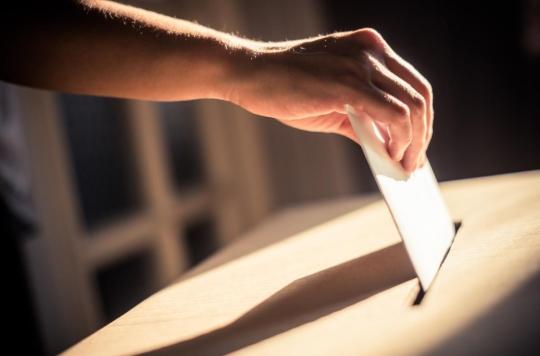Whether it is wide or thin, a face does not arouse the same reactions among voters. Their perception of the face of the candidates influences their vote, and this varies according to their political opinions.

- While gender equality has progressed, women are still less appointed than men to important positions.
- According to the authors, this could be linked to the way people perceive their face.
- They point out that these biases are often unconscious.
Sunday, April 10, the French will have to make their choice among the twelve candidates for the presidential election. The ballot deposited in the ballot box corresponds in principle to the political opinions of the person who deposits it. But, the vote can be influenced by other factors. In Journal of the Association for Consumer Researcha team from the University of Toronto shows that the face of the candidates, and their gender, have an impact on the choice of voters.
Differences between men and women
Pankaj Aggarwal, lead author of the research, and Ahreum Maeng, co-author, investigated the links between the width-to-height ratio of a face and the perception of authority. Generally speaking, they observe that a person with a wider face is perceived as having a more dominant personality, with stronger leadership than a person with a thinner face. In a series of experiments, researchers found that larger faces in men are perceived to reflect more authority, but this is not the case for women.
Variations according to political opinions
Moreover, according to the political opinion of the person, the feeling in front of a face varies. “We found that conservatives and liberals read authority cues differently from men’s and women’s faces.”, details Pankaj Aggarwal. In one of the tests, the scientists showed the faces of male and female candidates to conservatives and liberals. They asked participants to rate their likelihood of being elected to political office. Men with larger faces were perceived as more authoritative and eligible, but this finding did not hold for women.
The researchers found that conservatives had a stronger bias against women’s faces to the point that they were less likely to elect a female candidate, associated for them with weaker authority. In contrast, Liberals indicated that they were more likely to vote for a woman. However, like the conservatives, they do not make the connection between authority and face size in women. “This has practical implications for politics, gender stereotypes and how we perceive leadership roles in society.”underlines the main author of this research.
Where do these stereotypes come from?
According to him, one of the reasons for this difference in perception is probably related to the fact that conservatives believe in maintaining social hierarchies, while liberals try to overcome this prejudice and create a less hierarchical society. “Although there is a gender stereotyping effect that plays out among liberals, it is not as strong, and on average they were more likely to elect women and view them as leaders“, continues the researcher. As for why people perceive a larger face as more dominant and worthy of leadership, Pankaj Aggarwal thinks that it is deeply ingrained in our minds. In traditional societies, large faces were associated with the authority. However, the author believes it is important to remain alert to these prejudices. “The most important thing is to be aware of them and try not to be guided by them.”he points out.














